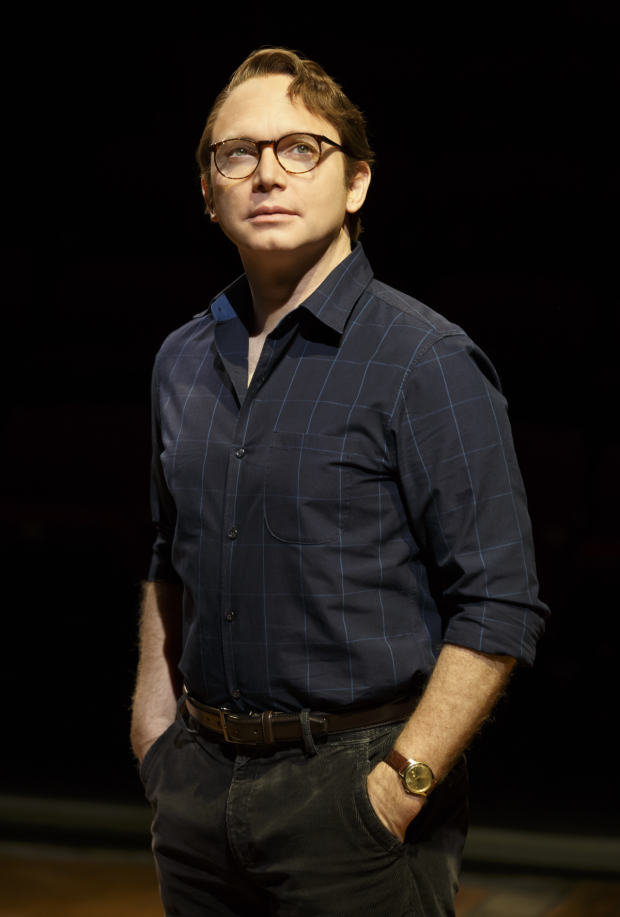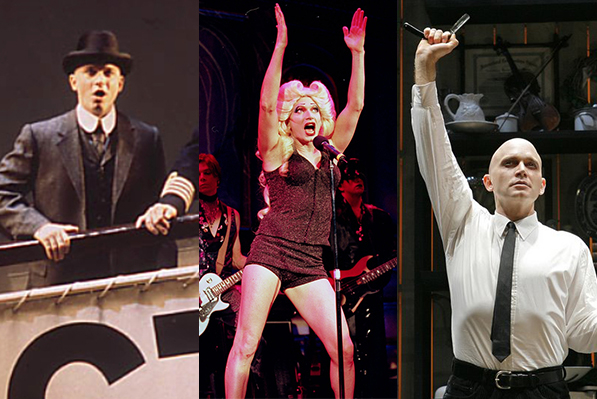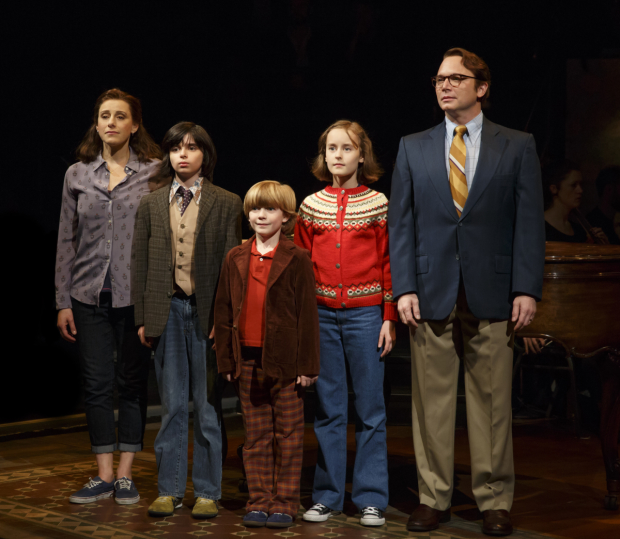With Fun Home, Michael Cerveris Becomes a Broadway Dad, While Remembering His Own
Cerveris stars in the new Jeanine Tesori-Lisa Kron musical inspired by the real-life story of cartoonist Alison Bechdel.

(© Joan Marcus)
Michael Cerveris knows a thing or two about playing characters with a dark side. From John Wilkes Booth to Sweeney Todd to Hedwig, the Tony winner finds incisive ways to bring humanity to the most misunderstood characters on Broadway.
Cerveris' adeptness at giving a soul to troubled souls served him well in 2013, when he starred in the Public Theater's world premiere production of Jeanine Tesori and Lisa Kron's musical Fun Home, inspired by Alison Bechdel's graphic memoir of the same title. Cerveris had the daunting task of playing Bechdel's real-life father, Bruce, an unhappy family man who kept his homosexuality hidden from his family and whose accidental death (or was it suicide?) occurred just a few weeks after Alison herself came out of the closet.
For his performance, which he is currently reprising in the show's Broadway bow at the Circle in the Square Theatre, Cerveris received the 2014 Lucille Lortel Award for Leading Actor in a Musical — and it's safe to say that there will likely be other accolades along the way.
In his lavender-scented dressing room, adorned with lava lamps, old vinyls, and photos of his own family, Cerveris chatted with TheaterMania about how his work as Bruce Bechdel and with this dark, emotionally overwhelming musical has allowed him to reconnect with his own past, while propelling him quickly into the future.
When did you realize that Fun Home would have such emotional resonance with the audience?
Just seeing the faces of these people who had clearly been through an emotional experience, and wanted to stay and talk to you about what they had just been through. I recognized, in those faces, my face when I went to see Death of a Salesman with Dustin Hoffman [in 1984], and then went to a payphone to call my dad and tell him I loved him. It made me think about my life and made me want to connect to the world more. And that's what I was seeing in the people who were coming to see our show. I didn't know it was going to be successful, whether it was going to move to Broadway, or any of that stuff, but I knew it was succeeding on the terms we set out, which was to really affect and involve our audience.
Has it hit you yet that you're at the stage in your career where you're playing dads?
Yes! It's so funny. I have played dads before. Sweeney Todd was a father of a certain type. [laughs] It's weird when you cross this threshold and you're playing dads, suddenly. But I actually am really enjoying that aspect of it. When I was a kid, I assumed I would be a father by now, and I just haven't stopped long enough for that to happen, I guess. But I get to practice with the kids here and they treat me like a dad, hanging on me all the time and telling me what they did in school today.
Have you and Alison Bechdel discussed the real Bruce?
She'll say things about how odd it is to watch somebody be her dad. Apparently, I've somehow managed to happen upon some of his mannerisms and things. Part of it is because she paints such a vivid portrait in the book, and Lisa and Jeanine have delivered that to the stage so brilliantly. Other people who knew [the real] Helen and Bruce Bechdel who've come have said, "We're so glad to see that you got his sense of humor" or "your tone of voice is exactly like his" or "he was really funny and everybody loved him." I think that's something people miss sometimes. I feel like that's maybe part of what the show is returning to Alison and her brothers, a little bit of the warmth and the happier bits along with the tragedy.

(© Joan Marcus/Tristram Kenton/Paul Kolnik)
In your mind, are there similarities between Bruce and other characters you've played, like Sweeney Todd and Thomas Andrews in Titanic?
Andrews is actually a really interesting comparison, because there's that visionary who's also got blinders on. And Sweeney, also, is so focused on what he wants to recover that he doesn't see that it's right in front of him, literally. He doesn't recognize the wife that he's missing. There's a kind of solitariness that's common to all of them. There's this combination of monstrousness and humanity in all of these characters, too. That's what I always try to bring out of them.
That's even true of Hedwig.
Yeah. All tragically searching for something. Hedwig, at least, seems by the end to have realized that the other half that she's been looking for might actually be in herself. You have some hope that maybe she's poised to have a better future. The rest of my characters? Not so much. But, yeah, I think there definitely is a common thread of outsiders; tragic figures who suffer most by not knowing themselves.

(© Joan Marcus)








